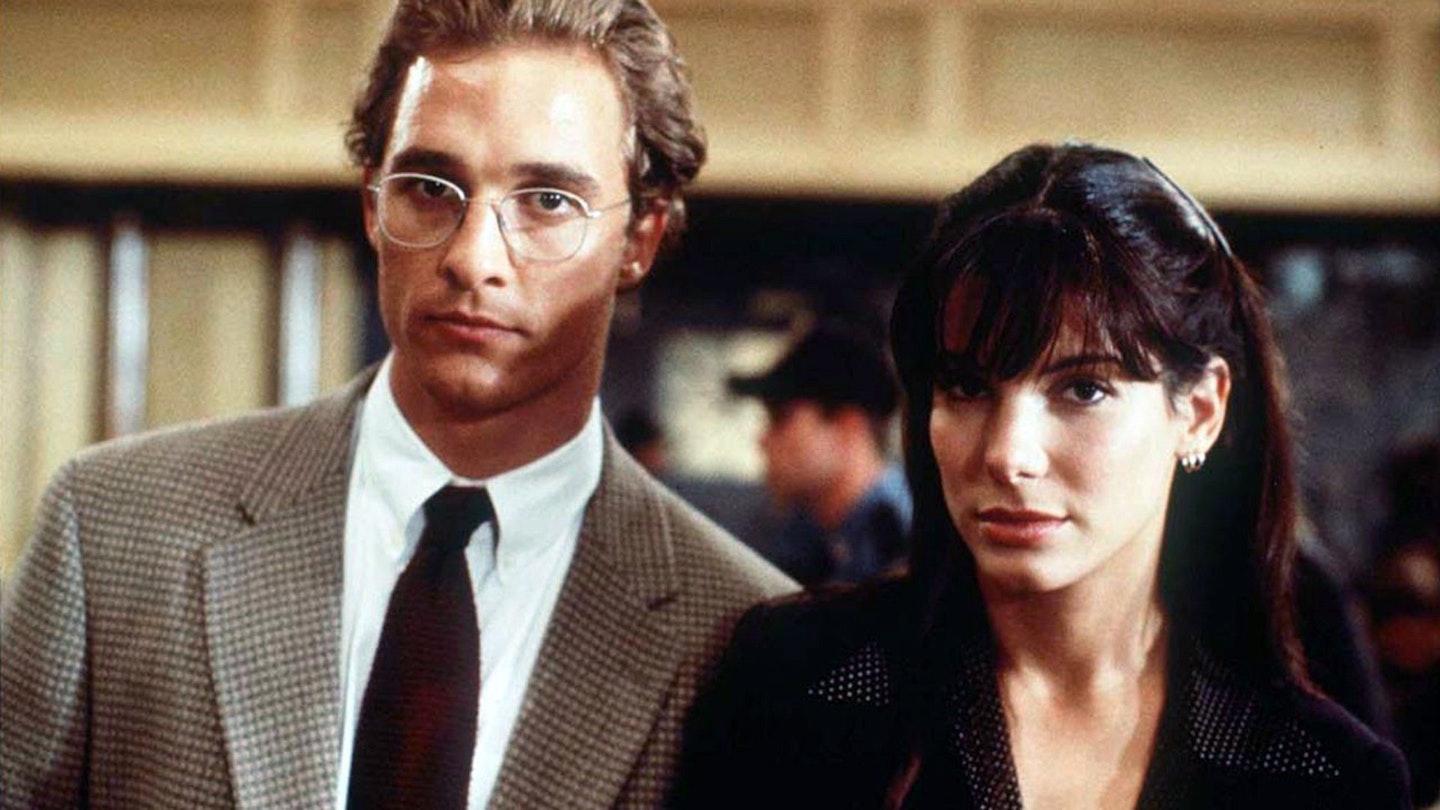So enamoured was he with Joel Schumacher's solid if unremarkable handling of The Client, that one-time legal eagle turned author-of-the-moment John Grisham handed the director the reins to his precious debut novel. By far his best work, A Time To Kill carried semi-autobiographical overtones that the scribe (and, now indeed, producer) had, fearing the worst, been unwilling to fritter off onto the Hollywood production line.
It proved less a gift than a hot potato: a moral tightrope of a subject, casting antipathy between director and author (over who would play the lead) and a shoot in the inflammatory and sweltering atmosphere of a Mississippi summer haunted by the ghosts of movies past - To Kill A Mockingbird casts a long shadow. Yet bad karma has led to enriched moviegoing. This is easily the most thought-provoking and stimulating of the Grishamised movies.
Unknown beforehand but now a superstar in the offing, McConaughey is Jake Brigance, the local boy lawyer embroiled in a case that is more akin to a legal firebomb. After two redneck bullyboys brutally rape his black eight-year-old daughter and then slip through a hole in the law, impassioned father Jackson dispenses home-made justice by a lethal injection. Of lead. It is, of course, Brigance who elects to defend his vigilante actions and blow issues of justice wide open. Enter the Ku Klux Klan, led by the sneering lustre of Kiefer Sutherland, to stir up the locals, propping up the thriller elements with top quality nastiness. And enter hotshot law student Sandra Bullock to boil up some serious sexual chemistry and add right-on viewpoints.
The rest of the rangy cast reads like a talent devotee wish-list: Kevin Spacey smarming away as the egotistical prosecutor; Ashley Judd as the fretting wife; Donald Sutherland the drunken old-timer with sly advice; and Oliver Platt providing comic asides as a cynicism-sodden buddy lawyer. Even down on the third echelon the players are still hot: M. Emmet Walsh, Charles Dutton, Brenda Fricker.
Once it is assured McConaughey can do the business, whipping up sex appeal and camera hoggage like a thoroughbred, it is hard for Schumacher to mess up. An actual niggle is, ironically, talent overload: there are hints of too many cooks with scant opportunity to savour the likes of Sutherland, Platt and Spacey, even top billed Bullock is only a support player. With all the acting bases covered - jail-bound Jackson, as taut as a piano string, is fantastic - and the stormy southern location squirming with sweaty confrontations, lynchings and racial tension, there comes the reliable bluster of the movie courtroom complete with stir-'em-up staples - rent-a-mob riots, objections, last ditch evidence, wholesale implausibilites and Patrick McGoohan's sneery judge.
It's all very Grisham - swish courtroom antics by blue-eyed golden boy win day - but one balanced precariously on an ethical quagmire. What would you do if it were your daughter? Can vigilantism ever be acceptable? Schumacher is never quite smart enough to keep the debate neutral, and the unrestrained hero worship at the close leaves a nasty taste. But a rare thing is a courtroom thriller daring to venture into the grey areas of the law, and A Time To Kill is a prime slice of legal Americana.
